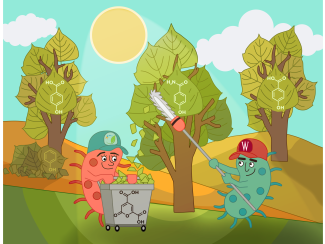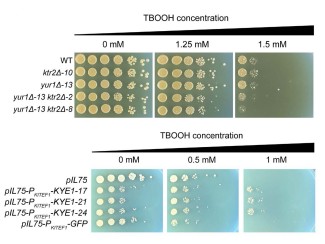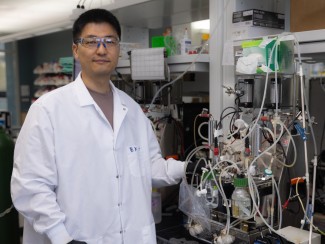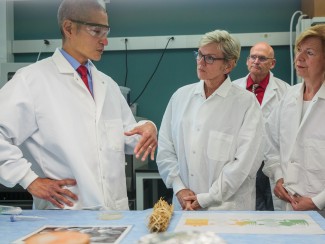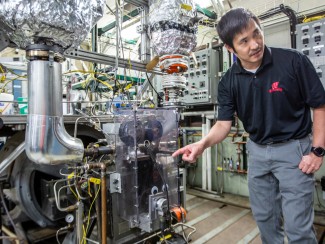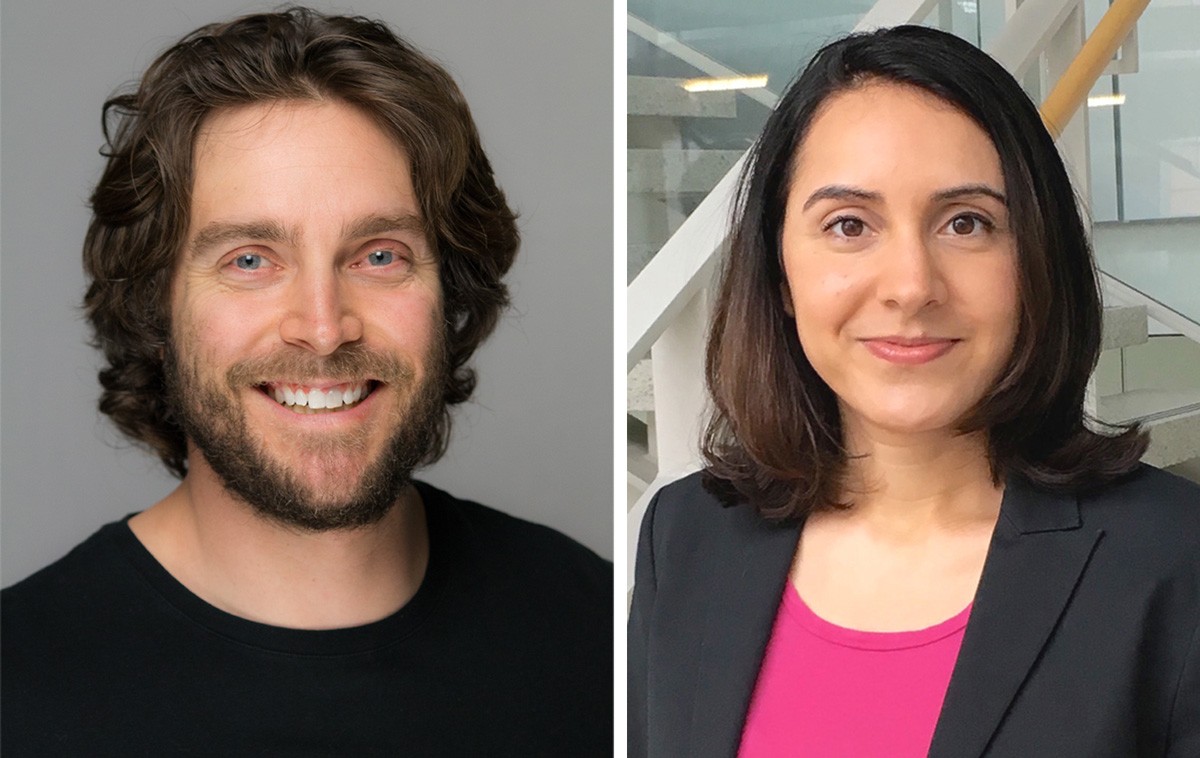
MADISON, Wis. – Two technical breakthroughs, from the realms of experimental physics and microscopic communities, have claimed top honors from WARF this year.
The 2019 WARF Innovation Award winners are: Mark Saffman (physics) and Ophelia Venturelli, Philip Romero, Ryan Hsu and Jin Wen Tan (biochemistry). Saffman has developed simplified optical hardware for quantum computing. His technology, recently licensed to ColdQuanta Inc., improves an apparatus for particle trapping, which will reduce the cost and complexity of next-generation quantum computing devices.
“We’re trying to push the envelope on how much computation we can do with a quantum computer,” said Saffman. “We currently have more than 100 quantum bits…that’s the largest number of quantum bits any lab in the world has been able to demonstrate to date.”
The other winning team of Venturelli, Romero, Hsu and Tan developed a microfluidic tool for mapping how bacteria interact in complex communities called microbiomes (such as the digestive tract). The ability to investigate these interactions on a large scale has implications from personalized medicine to improved food safety.
“[The technology] could have very broad applications,” said Romero. “We’re mostly targeting human health because of the importance of the microbiome in practically every disease we know.”
At the ceremony WARF also announced that it has granted the university $80 million for the 2019-20 academic year.
See more about the grant here.
An independent panel of judges selected the Innovation Award winners from a field of six finalists drawn from among approximately 350 invention disclosures submitted to WARF over the past 12 months. The winning inventions each receive an award of $10,000, with the funds going to the UW–Madison inventors named on the breakthroughs.
The other finalists were:
- Shannon Stahl, Hao Luo (chemistry), – One-Step Process to Generate Lignin-Derived Aromatics from Raw Biomass
- Brian Martinell, Michael Petersen, Edward Williams (Wisconsin Crop Innovation Center), Frank McFarland, Nathaniel Schleif, Shawn Kaeppler, Heidi Kaeppler (agronomy) – Improved Extraction and Preservation of Pathogen-Free Maize Germplasm
- Bhuvana Krishnaswamy, Yaman Sangar (electrical & computer engineering), – Power-Saving, Data-Transmitting System for Wireless Remote Sensing
- Ari Rosenberg (neuroscience), Brittany Travers (kinesiology), Adhira Sunkara (WiSys), – App for Stratifying Autism Spectrum Disorders
The announcement of the award winners and annual grant capped a day devoted to innovation. Now in its second year, WARF Innovation Day brought together industry innovators, researchers, investors, students and the public for a one-of-a-kind technological showcase. More than 300 attendees were treated to quick pitch presentations from WARF Accelerator teams as well as participants from two other UW System campuses, UW Platteville and UW-Milwaukee.
About WARF
The Wisconsin Alumni Research Foundation (WARF) helps steward the cycle of research, discovery, commercialization and investment for the University of Wisconsin-Madison. Founded in 1925 as an independent, nonprofit foundation, WARF manages more than 2,000 licensing agreements and an investment portfolio of $2.8 billion as it funds university research, obtains patents for campus discoveries and licenses inventions to industry. For more information, visit warf.org.

